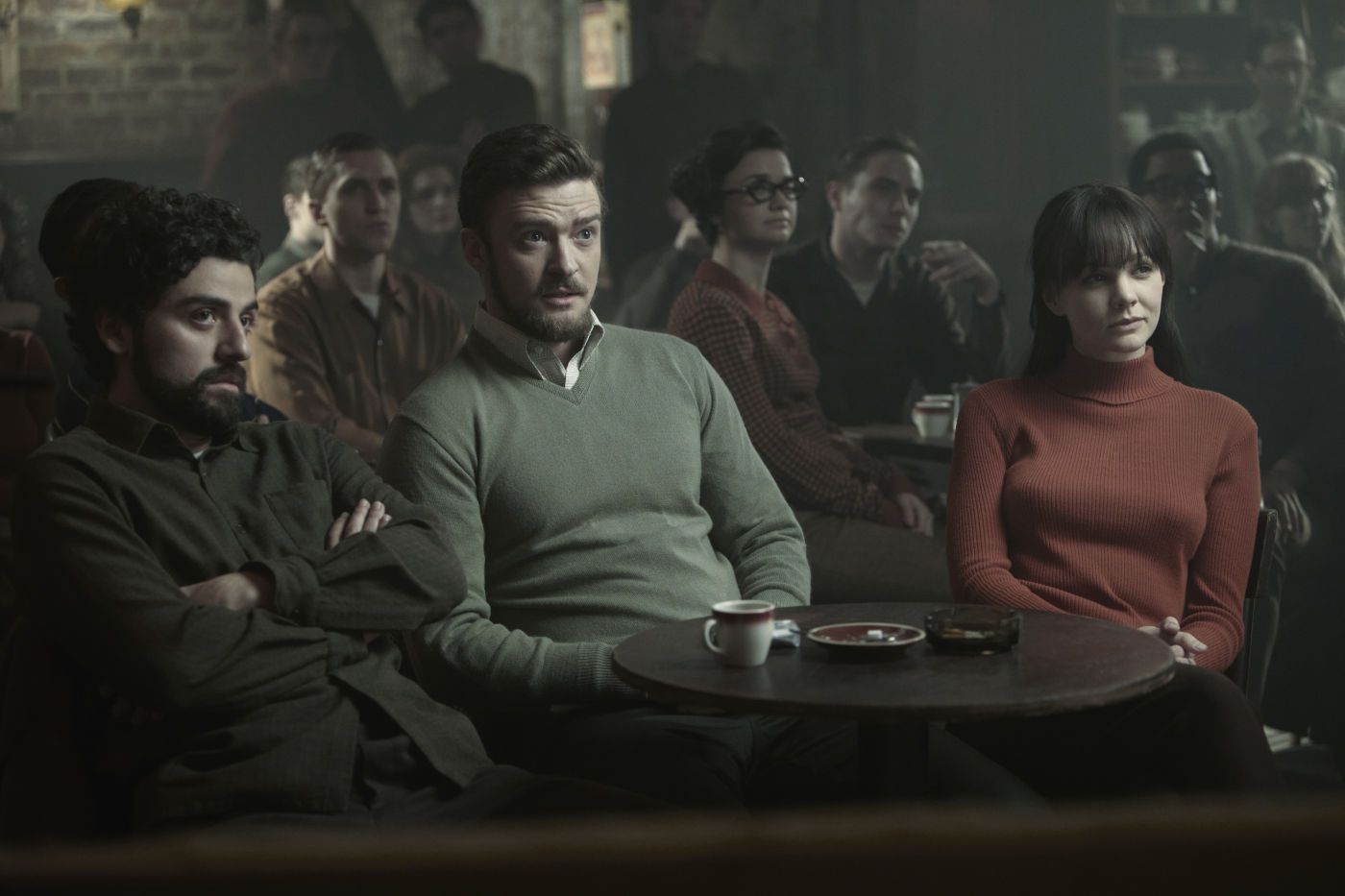Folk music wasn't always something I loved. Back in my early high school days I would have said that it was boring and wondered when on earth I could listen to some power metal to keep myself entertained. I didn't hate it like I did rap or country (I still don't like those genres, don't think I ever will), but when you're young and incredibly stupid like I probably was, you don't know any better. That of course changed a few years later as my musical tastes matured and became incredibly eclectic with my growing love of the indie music scene, and now Folk is one of my favourite genres.
The reason why I talk about not liking Folk music is that if I had kept this opinion back in 1961, the year that Inside Llewyn Davis takes place, I wouldn't be alone and I would be part of the problem causing the anguish that Llewyn goes through in the film. What the Coen brothers have created isn't a wonderful story about an underdog overcoming adversity and becoming the next Bob Dylan, this is the journey of yet another artist who quite frankly isn't good enough to make it big. Sure the songs that Llewyn sings in movie are heart-felt and beautiful, but he should trying to make ends meet rather than be the stereotypical starving artist too proud to admit that he has basically hit rock bottom.
All we see is a chronology and references to all the poor life decisions Llewyn has made, and his continued pride preventing him from either making the right decisions or moving on with his life. It's incredibly evident when we see Llewyn have an angry outburst when he is asked to sing a song for fun rather than get paid for it. The outburst starts when one of his host's sings his former folk duet partner's part; whom we learn committed suicide before the events of the movie. but considering his own love of music is starting to kill him on the inside despite his insistence that we should live in the moment and "not be square", we see that his pride is what is actually exhausting him both physically and emotionally.
The performances in Inside Llewyn Davis are phenomenal, with Oscar Isaac as the cynical and sullen Llewyn Davis and other big names playing the movie's motley crew of characters, all of whom are well cast and make the movie entertaining to watch and all are foil to Llewyn's melancholy. But the movie's focus is Llewyn, and I felt that despite everyone's amazing performances, they really didn't matter to Llewyn's incredibly sad life, or in the words of Carey Mulligan's character Jean someone who turns everything to shit.
It also goes without saying that the music in this movie is wonderful. In the theatre, I heard someone commenting that while they didn't like the movie itself (fun fact, this was before it started so why they were seeing it again I'm not quite sure), the soundtrack was worth listening to. In addition to the amazing performances by the actors of the movie, the musical performances are fantastic. In fact, I was presently surprised that Carey Mulligan can not only sing; she has a fantastic voice for folk songs (you chose well Marcus Mumford).
While the Coen brothers have done a great job making an incredibly smart, darkly comic and downright depressing movie, I can't help but feel a bit odd about what I'm to take away from it. As I mentioned earlier this movie doesn't have a happy ending, but it doesn't have a sad one either per say. I can't help but feel Jean was right in that people like Llewyn never think about the future, and perhaps that is why so many artists fall into the stereotype of suffering for their art. And yet I don't know if this is what the Coens were ultimately trying to get across, or just a side effect of it. The conclusion of the movie doesn't bring much resolution and we don't know what would happen beyond the week that we witness. For Llewyn Davis, it ends as it started; playing folk songs and trying not to be square.
Verdict: 9/10


No comments:
Post a Comment